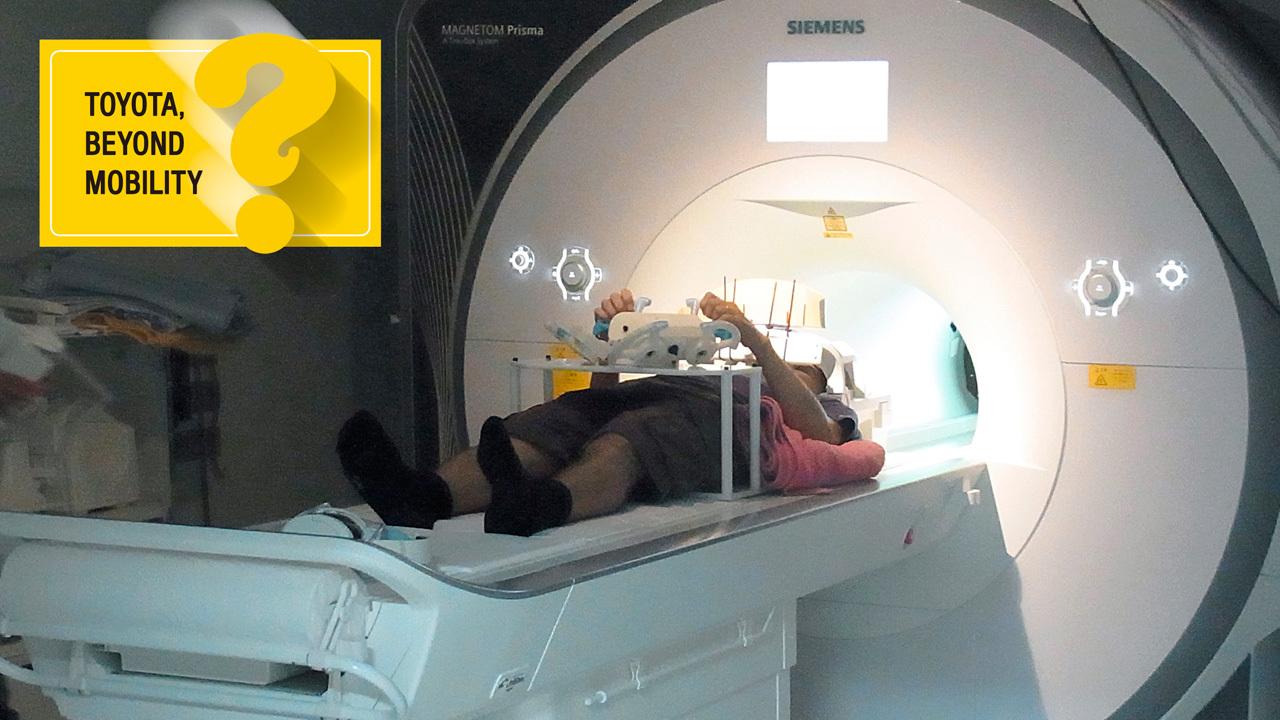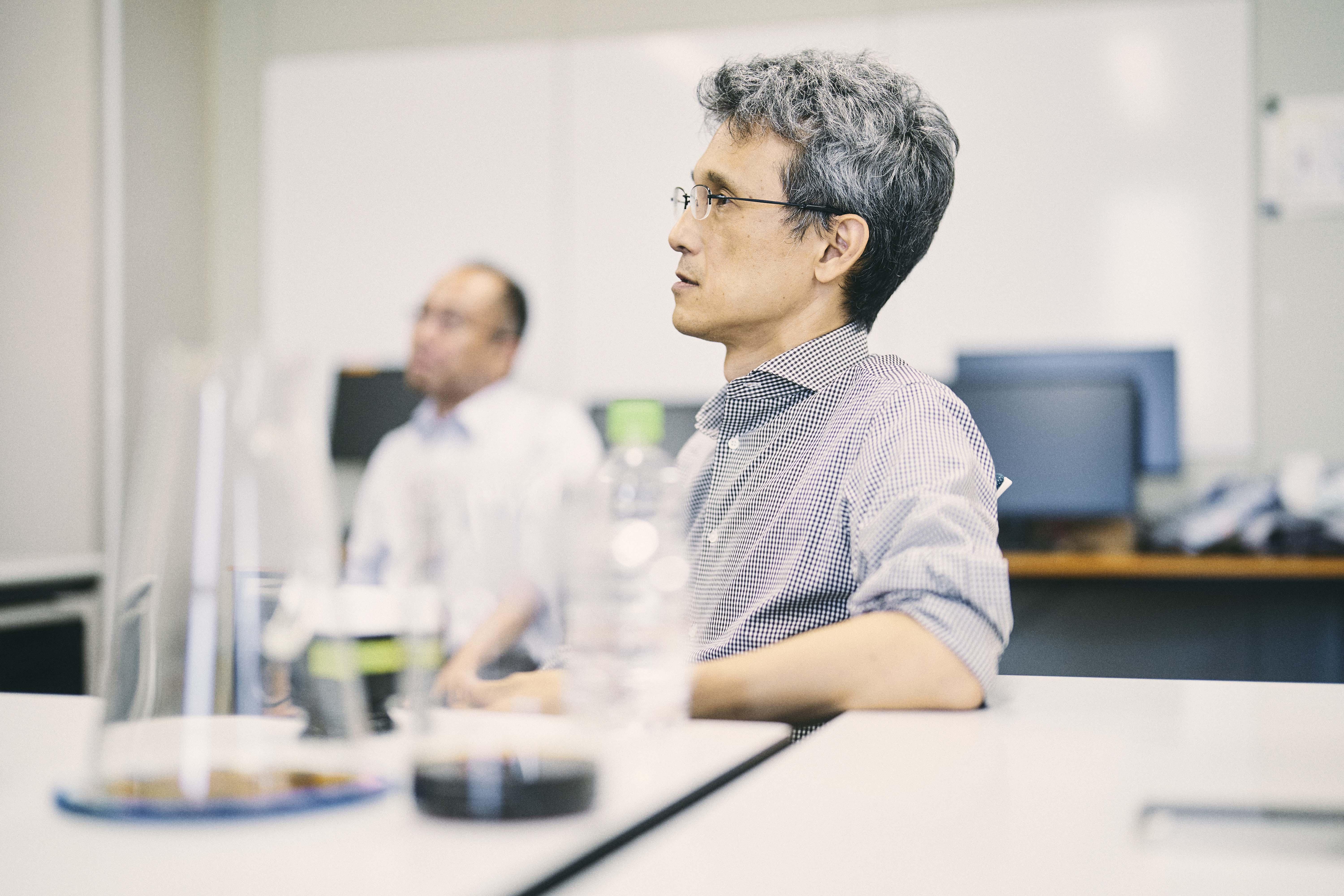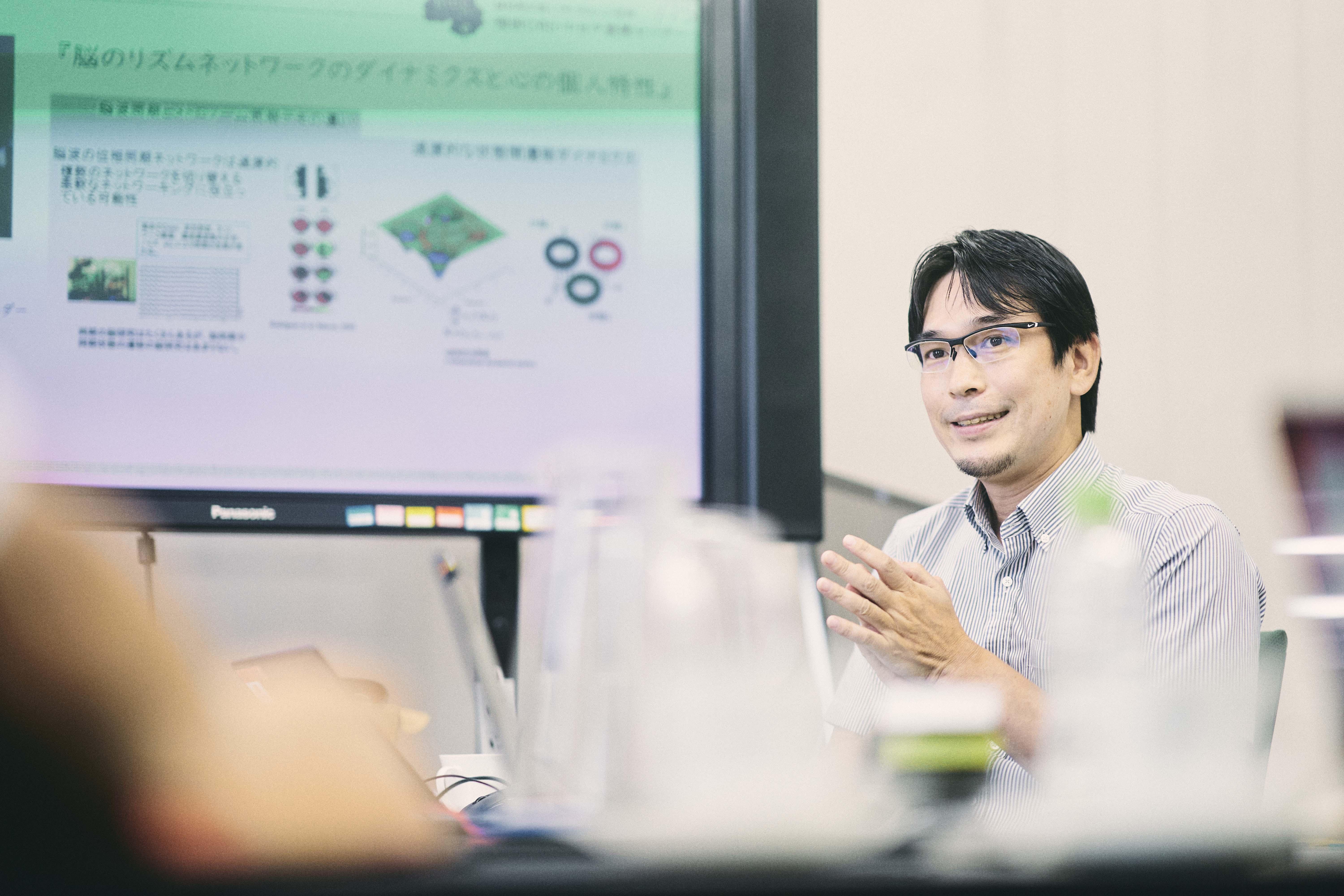
Part of a series featuring Toyota's research in non-automotive fields, this article showcases research into brain activity using MRI... wherever that leads.
The secret to achieving human-like AI
Group Manager Hitoshi Yamada explains Toyota’s reasons for embarking on brain research.
Hitoshi Yamada, Ph.D., Group Manager, R-Frontier Division, Frontier Research Center

We are pursuing universal principles for people’s physical and mental well-being. As the pandemic upended the way people work, we began to think about happiness in terms of the interests of both companies and individuals.
Each person finds happiness in different ways. Despite this, we were driven by the idea that examining this from the perspective of brain science might reveal commonalities and other key points.
We cannot understand this by looking only at phenomena such as tragic incidents or mental disorders. We need to look inside to see what’s going on in the human mind.
The brain is full of mystery, which is why the research continues to reveal all kinds of possibilities.
Dr. Yamada
Although AI is widespread today, I don’t believe the current deep learning approach will lead us to human-like AI.
The essence is figuring out how the mind’s simulation mechanism works to perceive the physical world. To create a truly intelligent AI, we must also study the brain itself.
The team is also taking on the challenge of visualizing a brain’s individuality.
Do brains have personalities?
Yuhei Yamaguchi, Ph.D., Project Manager, Frontier Research Center, R-Frontier Division

At BTCC, we have also been investigating brain waves alongside our MRI research.
Brain waves may reveal aspects of a person’s character that could previously only be ascertained from their behavior or psychological questionnaires, such as a tendency to be overly focused due to difficulty shifting attention.
The state of well-being varies from person to person. To help people achieve what is best for them, we need technology that can grasp and visualize human personalities.
Research into the brain is expected to have a wide range of applications, such as to find ways to become better at playing sports or musical instruments, to deepen trust between people, or even to make stroke rehabilitation more efficient.
Nowadays, fundamental research with no immediately visible payoff tends to receive little recognition. Here, however, such research is steadily progressing to learn more about humankind.
Since the time of group founder Sakichi Toyoda, Toyota has embraced the philosophy, “Always be studious and creative, striving to stay ahead of the times.” In staying true to these words, Toyota continues following paradigm-shifting research across various fields, ensuring that many surprises await.

